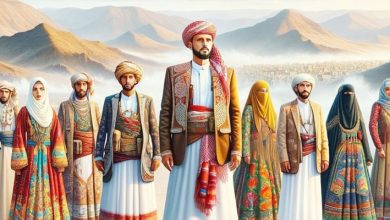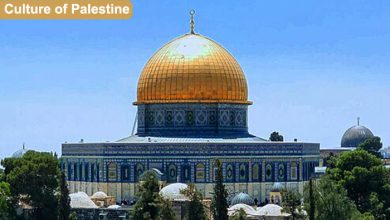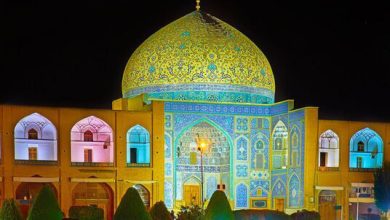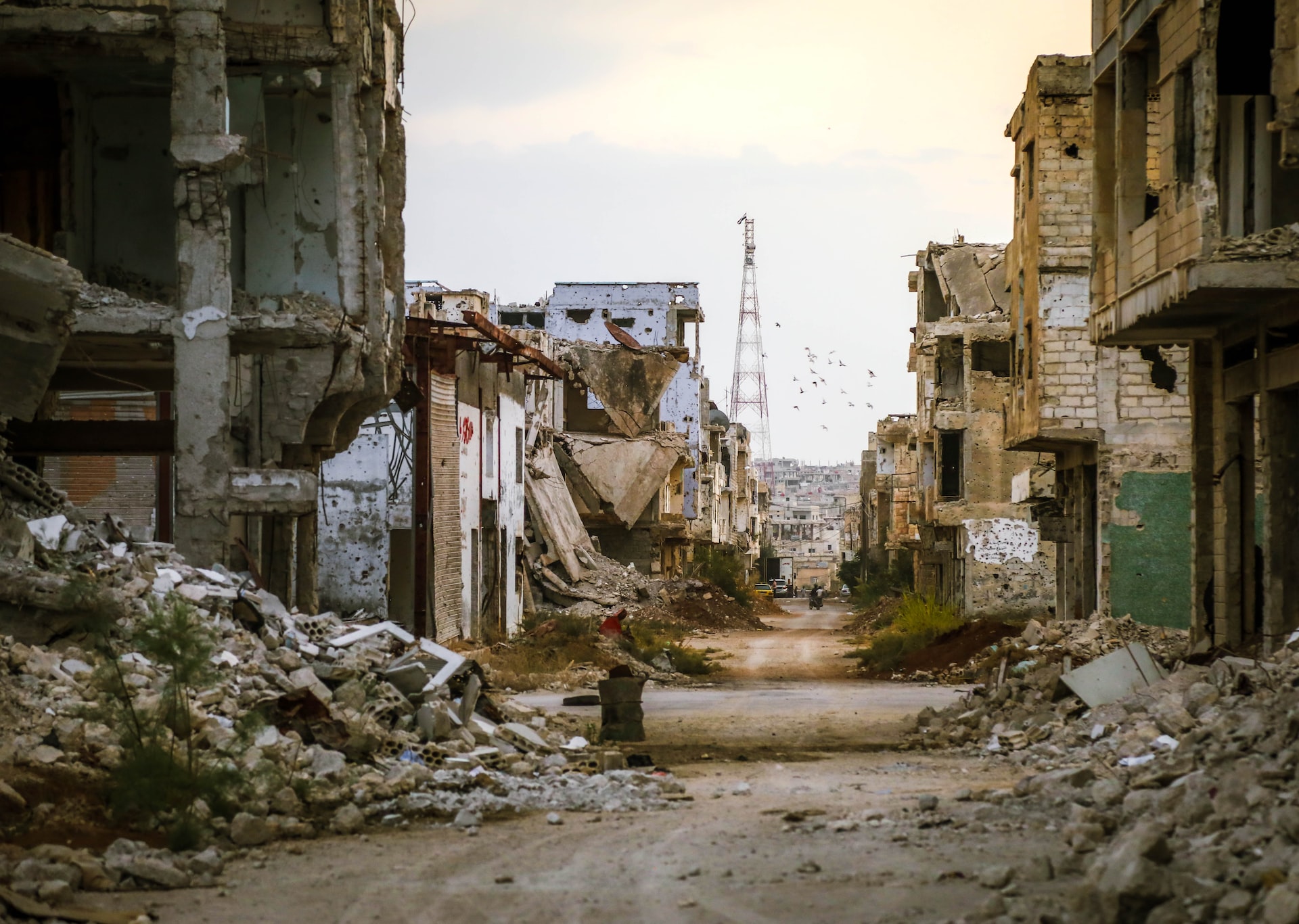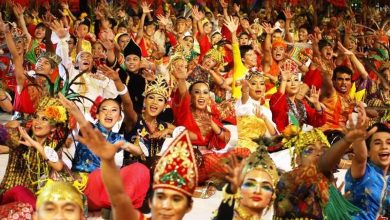Culture of Brazile with General Information
Total size:
8,511,965 square km
Region:
South America
Capital:
Brasilia
Low point:
Atlantic Ocean 0 m
High point:
Pico da Neblina 3,014 m
Climate:
Mostly tropical & temperature in south
Major cities:
Saopaulo, rio de janeiro, belohorizonte, portoalegre, brasilia
Famous places:
Christ the redeemer, sugarloaf mountain, Ipanema beach, Fernando de Noronha, carnival in Rio, Copacabana beach, Sao Paulo, amazon rainforest
Currency:
Real (brl)
Type of government:
Federative republic
Independence:
7 September 1822
Divisions:
6 states
General Overview of Brazil
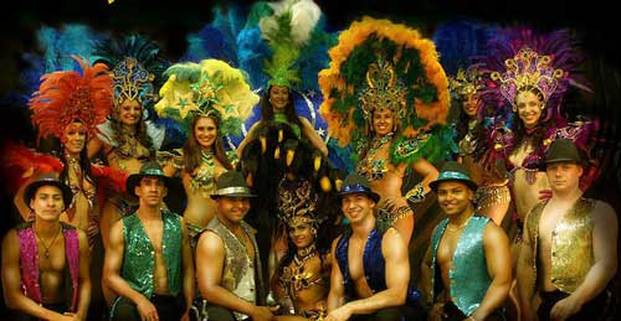
Brazil is a country with a vibrant and unique culture, often described as a melting pot of influences from its diverse population, geography, and history. From its traditional national identity and customs to its arts, music, cuisine, and lifestyle, Brazilian culture is a source of pride and identity for those living in the country and around the world. In this blog, we will explore the many facets of Brazilian culture, including its social etiquette and customs, language, religion, sports and recreation, family dynamics, education, gender roles in society, economic structure, political structure, climate and environment, history, tourism, business environment, cultural diversity, celebrations and holidays, important cultural sites, healthcare system, safety and security, immigration, connections with other cultures, media and technology, government policies and regulations, foreign relations, intercultural communication, cultural identity, transportation, social media presence, Brazilian popular culture, the impact of globalization, and influence on the world.
National identity and traditions
Brazil is a country with a rich and vibrant culture, which is expressed through a number of traditional customs and practices. National identity and traditions play an important role in the lives of Brazilians and are deeply embedded in their culture. From their traditional music and dance styles to their colorful festivals and celebrations, Brazilians take great pride in their cultural heritage.
Traditional music and dance are an integral part of Brazilian culture, with a variety of styles that reflect both African and European influences. Samba, bossa nova and forro are just a few of the popular dance styles that can be found in the country. Additionally, traditional instruments such as the cavaquinho and the berimbau are also still played in many parts of the country.
Festivals also play a big role in Brazilian culture, with each region having its own unique celebrations. Carnaval is perhaps the most well-known of these festivals, but other local events such as the festajunina, Oktoberfest, and festa do divino are also popular.
Brazil also has a number of traditional foods that are served during festivals and celebrations. Dishes such as feijoada, moqueca, and vatapá are some of the national dishes and are popular with locals and tourists alike.
Cultural representation in arts and music
Brazil is renowned for its rich cultural heritage and its representation in both the arts and music. Brazilian culture is represented in a variety of ways, from the vibrant colors of its street art to the captivating rhythms of its music. In the visual arts, traditional Brazilian motifs such as the orixás, a pantheon of spiritual entities that represent various forces of nature, are often featured in paintings, sculptures, and other forms of art. Music is also a major part of Brazilian culture, with a variety of rhythms and styles including samba, bossa nova, funk, and more. All of these cultural representations provide a unique perspective into the vibrant culture of Brazil.
Lifestyle and cuisine of Brazil
Brazil is a vibrant and culturally-rich country located in South America. The lifestyle and cuisine of Brazil are diverse and unique, with influences from the country’s many immigrants. Brazilian cuisine is known for its flavorful, rich dishes, with influences from African and Portuguese cultures. Dishes such as feijoada, which is a stew made of black beans and pork, and churrasco, a type of barbecued meat, are popular in the country. Other popular dishes include empanadas, a type of pastry filled with meat and cheese, and coxinha, a deep-fried dough filled with shredded chicken and spices.
Brazilian lifestyle is also full of music and vibrant festivals. Samba is the country’s national dance and is a mix of African and European influences. Other popular styles of music include bossa nova, a fusion of jazz and samba, and funk carioca, a mix of hip-hop, electro, and samba. Brazil celebrates a number of festivals throughout the year, including carnival in Rio de Janeiro and sãopaulo, a celebration of music and culture that draws millions of people each year.
Social etiquette and customs
The culture and customs of brazil are highly influenced by the many diverse cultures that have been present throughout the country’s history. As a result, brazil is known for its vibrant and unique social etiquette and customs. Respect for elders is of utmost importance in Brazilian society, and it is customary to greet others with a handshake and a greeting such as “ola” or “bomdia”. It is also important to dress appropriately when entering a Brazilian home, and it is polite to bring a gift such as a bottle of wine or a small token of appreciation. Lastly, it is considered rude to be late to any social gathering, so it is important to be punctual and arrive on time. By adhering to these basic social etiquettes and customs, visitors to brazil can ensure they are seen as respectful and kind by the people they meet.
Language
Brazil is a country with a diverse and vibrant culture and language. The official language of Brazil is Portuguese, although there are many other languages spoken in the country as well, such as Spanish, German, Italian, and indigenous languages. Brazil is home to many different cultural traditions, from music and dance to literature and art. The culture of Brazil is one of the most unique and interesting in the world, and its language reflects that. Brazil is an excellent place to visit to experience the culture and language first-hand, as there are many opportunities to learn and practice the language.
Religion in Brazil
Brazil is a culturally diverse country, and religion plays an important role in the lives of many of its citizens. Catholicism is the predominant religion in Brazil, with approximately 65% of the population identifying as catholic. Protestantism is the second-largest religion, comprising about 22% of the population. Other religions represented in brazil include spiritism, African-based religions, Judaism, Islam, and Buddhism.
The role of religion in Brazil has been widely discussed in the media, and it has been said to contribute to the cohesion and stability of the country. This is especially true with respect to the afro-brazilian religions, which are often used as a means of self-expression and solidarity among the brazil’safrican-descended population.
Religion has also been seen to play a role in the economy of brazil. Religious festivals, processions, and other events attract large numbers of tourists and generate significant revenue for local businesses.
Overall, religion plays an important role in Brazilian culture and society, and its influence is likely to continue to be felt for many years to come.
Sports and recreation
Brazil is renowned for its vibrant culture, as well as its passion for sports and recreation. Soccer is the nation’s most popular sport, with millions of people attending matches and participating in local clubs. Other popular sports include beach volleyball, basketball, and formula 1 racing. When it comes to recreation, Brazilians are known for their love of outdoor activities such as swimming and hiking. Music and dancing are also important parts of the country’s culture, with traditional dances like the samba and forró gaining widespread popularity. Brazil is a prime destination for those who enjoy sports and recreation, and the culture of the nation is sure to be an unforgettable experience.
Family dynamics
Brazil is a country known for its strong family culture and dynamics. In Brazil, family is of utmost importance and is usually the core of most people’s lives. Relationships between family members are typically based on mutual respect, trust, and support. This strong bond between family members can provide a supportive and nurturing environment in which to live and grow. It is also common for extended family members to be involved in decisions, such as those related to marriage, education, and career. Ultimately, family dynamics in Brazil foster a sense of belonging and provide a sense of security.
Education
Brazil is a country that places a great emphasis on education. Brazilian culture values education as a route to success and a way to develop strong social and professional skills. Education provides people with the opportunity to pursue their dreams and gain the knowledge and skills needed to achieve their goals. Brazil has a rich history of academic excellence and its educational system is highly competitive. Students have access to a variety of educational institutions, ranging from public universities to private universities and technical schools. The Brazilian government provides financial support to students who cannot afford the cost of tuition, and there are numerous scholarships and grants available. Education in Brazil is highly valued, and the country is committed to creating a brighter future for its citizens through the promotion of education.
Gender roles in society
In Brazil, gender roles are an important part of the country’s culture. Traditional gender roles emphasize male power and authority, and a woman’s primary role is to be a wife and mother. Men are typically seen as the breadwinners, while women are expected to take on roles as homemakers. This gender divide is reflected in the workplace, with men typically taking on leadership positions and women tending to work in lower-paying, service-oriented jobs. There are some signs of progress, however, as women are slowly beginning to break down traditional gender roles by entering higher-paying professions and becoming more independent. The government is currently making strides to create more job opportunities for women and to provide more access to education. While there is still much progress to be made, Brazil is making strides in creating a more equitable society.
Economic structure
Brazil is a country with a diverse economic structure, ranging from traditional sectors such as agriculture and mining to high-tech industries. The Brazilian economy is based on a stable macroeconomic framework, open markets, and free trade policies. It has a strong manufacturing base and is one of the leading exporters of manufactured goods in the world. It is also an important destination for foreign direct investment, as well as a hub for services and technology. The country is also well known for its vibrant culture, with its music, art, and architecture being heavily influenced by its African and indigenous heritage. Brazil is a country of diversity and economic opportunity, and its culture is a testament to its dynamism.
Political structure
Brazil is a federal republic composed of 26 states & one federal district. It is the largest country in South America and the fifth largest country in the world. The Brazilian political system is based on a multi-party system, with the three main parties being the Brazilian democratic movement, the Brazilian social democracy party, and the Brazilian labor party. The president of Brazil is the head of state and is elected every four years. The Brazilian government has a strong emphasis on promoting social equality, protecting the environment, and developing the economy. The Brazilian cultural landscape is diverse, rich, and vibrant, with influences from the indigenous population, European settlers, and African slaves. Brazil is known for its music, literature, and art, which reflect the rich history and culture of the country.
History of brazil
Brazil is the largest and most populous country in South America, and its history dates back to pre-Columbian times. Throughout its history, Brazil has seen many different cultures and civilizations, including the Portuguese, who colonized it in the 16th century. Since then, Brazil has seen a variety of economic, social, and political changes, which have all contributed to its modern culture. The country has had a democratic government since the mid-1980s and is known for its diversity of cultures, music, art, and cuisine. In addition, Brazil has an important role in the global economy, being a key player in the production of commodities such as coffee, sugar, soybeans, and iron ore. Cultural and religious expression are also important aspects of Brazilian life, with Christianity and afro-brazilian religions making up the majority of religious beliefs. Brazil is home to many unique traditions and festivals, which draw people from all over the world.
Tourism
Brazil has a diverse and vibrant culture that is reflected in its business environment. With a rich history and a wide variety of cultural influences, the country offers unique opportunities for business success. Brazil is a diverse country, with a variety of ethnic and religious backgrounds. Companies in Brazil must be aware of differences in language, customs, and social values when conducting business. In addition, brazil is a highly competitive market and companies must be prepared to adapt and adjust their strategies accordingly. Companies must also understand the local laws and regulations of brazil, as well as the cultural and social norms, in order to ensure successful business operations. Understanding the country’s culture and values is essential for successful business operations in brazil.
Cultural diversity
Brazil is a culturally diverse nation with a variety of unique customs and traditions. With influences from European, African, and indigenous cultures, Brazilian culture has produced a vibrant and unique set of customs and beliefs. The culture of Brazil has been shaped over centuries by its people’s values, languages, religions, customs, music, art, and cuisine, making it an incredibly special place to visit. From the vibrant and bustling city of Rio de Janeiro to the laid-back charm of Bahia, exploring the diverse cultural heritage of Brazil is an unforgettable experience. From its distinctive cuisine to its lively music and dance, the culture of Brazil is truly a delight to discover.
Celebrations and holidays
Brazil is a country rich in culture and traditions, and there are many holidays and celebrations throughout the year. Brazilians love to get together and celebrate, and there is a wide range of festivities across the country. These range from the nationwide holiday of carnival to the religious celebrations of easter, Christmas, and new year’s. Other popular celebrations include the catholic festivals of corpus christi, the independence day of brazil, and the national day of commemoration of the abolition of slavery. The celebration of these events provides an opportunity for Brazilians to come together, reflect on their shared history, and enjoy the festivities.
Important cultural areas in brazil
Brazil is a country with a rich and vibrant culture, and there are many important cultural sites that are worth visiting. The iconic city of Rio de Janeiro is home to some of the most iconic cultural attractions such as the christ redeemer statue and the sugar loaf mountain. The city of Salvador is also home to many historic sites and churches, such as the church of nossosenhor do bonfim. Other important cultural sites include the museum of modern art in sãopaulo and the Paraty historic center in Rio de Janeiro. These sites offer a unique view of the history and culture of brazil. Visitors can explore these sites to get an up close and personal look at the culture of this amazing country.
Geography
Brazil is a vibrant and culturally diverse country located in South America. Its culture has evolved over centuries and includes influences from indigenous tribes, Europeans, Africans, and more. The vibrant culture of Brazil is reflected in its music, art, cuisine, celebrations, and more. Its music ranges from traditional folk styles like samba and bossa nova to newer styles like funk and hip hop. Brazilian art includes works from both contemporary and traditional styles, such as the indigenous art of the amazon and the popular street art of Rio de Janeiro. Brazilian cuisine is a global phenomenon, with dishes like feijoada and brigadeiro being popular around the world. The country is also known for its lively celebrations, such as carnival and the bumbameuboi. From its unique culture to its vibrant people, Brazil is an amazing place to explore and experience.
Healthcare system
Brazil is a country with a rich cultural history and a healthcare system that is designed to help support its citizens in times of need. The Brazilian healthcare system offers a range of services and treatments for both physical and mental health concerns, including primary care, hospitalization, and specialized care. Additionally, Brazil offers a variety of medical insurance plans, helping to ensure that citizens have access to quality healthcare regardless of economic status. The Brazilian government is also dedicated to promoting public health and wellness through campaigns, initiatives, and educational programs, helping to create a healthier population.
Safety and Security
Brazil is a vibrant, diverse country that offers a unique cultural experience for travelers. Despite its rich history and culture, it is important to keep safety and security in mind when visiting brazil. Taking the necessary precautions to ensure your safety can help you to enjoy your trip without worry. Researching the local customs and laws can help you understand the cultural environment and prevent any potential missteps. Additionally, it is important to be aware of your surroundings, carry a map, and keep your belongings safe and secure. With the right preparation and vigilance, you can experience all that Brazil has to offer while remaining confident in your safety and security.
Immigration
Immigration has been a major part of Brazil’s culture and history. From early settlers to modern immigrants, the country has seen a diverse array of cultures and influences. Brazil is well known for its welcoming attitude to newcomers and its commitment to the idea of one nation, many cultures. With its vibrant, diverse population, Brazil offers a unique opportunity to experience a variety of cultures and ways of life. The country’s rich cultural heritage is reflected in its art, music, food, dance, and literature. For immigrants, Brazil serves as a source of inspiration and a place to explore unique opportunities. With its diverse and welcoming spirit, Brazil is a great place for immigrants to settle and integrate into local communities.
Connections with other cultures
Brazil is a vibrant, multicultural nation that boasts a wide range of cultural influences from around the world. It has strong connections with other cultures, particularly in Latin America, Europe, and Africa. From its cuisine to its music, art, and literature, Brazilian culture has been strongly shaped by centuries of cultural exchange with other nations. Its inhabitants have adopted and adapted elements of other cultures to create a unique, diverse identity that is proudly celebrated throughout the country. From the cuisine of the amazon to the rhythms of samba, Brazil is a melting pot of cultural influences from around the world.
Media and technology
Brazil is well known for its vibrant culture and its embrace of media and technology. From the nationally beloved telenovelas to the world-renowned Rio music scene, brazil has continually pushed the boundaries of media content and technology. With the development of mobile technology, Brazilians have found ways to further express their culture through social media, applications, and streaming services. Brazil has also become a leader in the development of new technologies, leading to the production of innovative products and services. With its vibrant culture and embracement of media and technology, Brazil stands as a global leader in the industry.
Government policies and regulations
Brazil is home to a diverse culture, and the government seeks to ensure that this culture is preserved and celebrated. Government policies and regulations are in place to protect and promote cultural heritage, heritage sites, and cultural practices. This includes protecting certain areas from development and promoting traditional customs and activities. The government also works to protect the rights of cultural minorities, such as indigenous populations and religious minorities. Additionally, the government seeks to provide access to cultural resources, such as education and healthcare, to all of its citizens. These policies and regulations help to ensure that Brazil remains a vibrant and diverse country with a strong cultural identity.
Foreign relations
Brazil is a large and diverse country with a rich history and a vibrant culture. Its people have a strong sense of national identity and are proud of their rich heritage. As a result, Brazil’s foreign relations are a vital part of its national identity. Brazil works closely with its South American neighbors to promote economic and political cooperation and is also an active participant in global forums such as the United Nations, g20, and the World trade organization. It has also established strong ties with nations around the world, including the United states, Russia, china, and India. Brazil’s culture is unique, with influences from both the indigenous peoples and European settlers. From the vibrant samba music to the colorful carnivals, Brazil offers a unique cultural experience to visitors and immigrants alike.
Intercultural communication
Intercultural communication is an essential part of engaging with Brazil’s culture. Understanding cultural norms, values, and behaviors help to bridge the gap between cultures, build strong relationships, and foster mutual respect. Brazil has a rich and vibrant culture, steeped in traditions and celebrated across the globe. In order to effectively communicate with Brazilians, it is important to be aware of the language, customs, social etiquette, and other aspects of their unique culture. By learning about Brazilian culture, we can better understand each other and create meaningful dialogue.
Cultural identity
Brazil is a culturally diverse country with a rich and vibrant history, making it one of the most unique places to explore. It has a deep connection to its culture, which is strongly evident in traditional music, art, cuisine, and customs. Brazil’s culture is also heavily influenced by its African roots, particularly evident in its music and dance. The country is home to a wide range of religious beliefs and practices, including Catholicism, Protestantism, and African religions. As a result, brazil boasts a unique cultural identity that is celebrated and cherished by its citizens. Brazilians are proud of their culture and identity, and it is evident in their everyday lives. From their vibrant festivals to their passionate football matches, Brazilians celebrate their culture and share it with the world.
Transportation
Brazil’s culture places a high value on efficient transportation and its citizens enjoy access to a variety of options. The country’s transportation infrastructure is well-developed and includes a network of highways and roads, air transportation, a national railway system, and other public transportation options. In addition to domestic transportation, Brazil also offers a wide range of international travel options, including flights, cruises, and ferry services. Brazil has been investing heavily in improving and expanding its transportation systems, and the country’s infrastructure continues to develop and evolve to meet the needs of its citizens and visitors.
Social media presence
Brazil is an increasingly connected country and its culture is strongly influenced by social media. As Brazilians continue to embrace the internet to interact with one another and share their culture, social media presence has become increasingly important. Brazilians use social media to stay informed on current events and to connect with friends and family. Platforms such as Facebook, Instagram, Twitter, and youtube are all popular among Brazilians and offer a great opportunity to learn about their culture and engage in conversations. The Brazilian government and businesses also recognize the power of digital platforms and are using them to reach out to their citizens and customers. Social media presence in Brazil is growing rapidly and is sure to play an even bigger role in the coming years.
Brazilian popular culture
Brazil is a country with a thriving culture, and its popular culture is no exception. From the vibrant samba music of Rio de Janeiro to the unique carnival celebrations throughout the country, Brazil has a wide range of cultural expressions. Brazilians are passionate about their music, art, literature, dance, and cuisine, and these elements are all part of the nation’s popular culture. Music is a particularly strong part of Brazilian culture, with many genres like samba, bossa nova, and choro being popular among native Brazilians. Dance styles such as the samba and capoeira are also common cultural expressions. Brazilian literature is known for its vivid imagery and depictions of everyday life. The country’s cuisine is also renowned, with dishes such as feijoada, picanha, and pastel de nata being very popular. These are just a few examples of the wide variety of cultural expressions that make up Brazilian popular culture.
Impact of globalization on Brazilian culture
Globalization has had a profound impact on Brazilian culture. In recent years, Brazil has been increasingly exposed to western cultural influences, including language, media, and consumer trends. This has led to the adoption of aspects of American and European culture, including music, fashion, and cuisine. The increased access to international products and services has also had a major impact on how Brazilians view and interact with the world. The rise of technology and social media has made it easier for people to connect with each other, allowing for a greater exchange of ideas and cultures. Additionally, the implementation of economic reforms has opened up the Brazilian market to more foreign investment, furthering the spread of international influence. As a result, Brazilian culture is becoming more diverse and cosmopolitan, while still holding onto its traditional values and customs.
Influence of Brazilian culture on the world
Brazil is a country with a rich cultural heritage that has had a lasting impact on the world. From its vibrant music and art to its delicious cuisine and vibrant nightlife, Brazilian culture has been shared with and embraced by people around the globe. The influence of Brazil’s culture is evident in the way it has been embraced by other countries and the way it has left its mark on the world. Music, such as samba and bossa nova, has spread around the world, while elements of Brazilian art, such as street art and graffiti, can be found in cities around the world. Additionally, Brazilian food has become a staple in many international restaurants, with dishes such as feijoada and bobó de camarao being widely enjoyed. Brazilian culture has also had a powerful influence on the fashion world, with the country’s unique style of the dress being adopted in many forms by people around the world. Brazil’s unique and diverse culture has had a lasting effect on the world, and its influence can still be seen today.
Conclusion
Brazil is a fascinating country with a vibrant culture, diverse customs, and unique traditions. The culture of Brazil is the result of centuries of influence from the indigenous population, settlers from Europe, and Africans brought over during the slavery period. This has resulted in a culture that is truly diverse with a multitude of influences from around the world. From the lively national identity to the cuisine, lifestyle, social etiquette, language, religion, sports, and education, Brazil has something to offer everyone. Brazil is a country that has welcomed people from all over the world, and its culture has been greatly enriched by its interactions with other cultures. As Brazil continues to evolve, its culture is sure to remain vibrant and alive.
